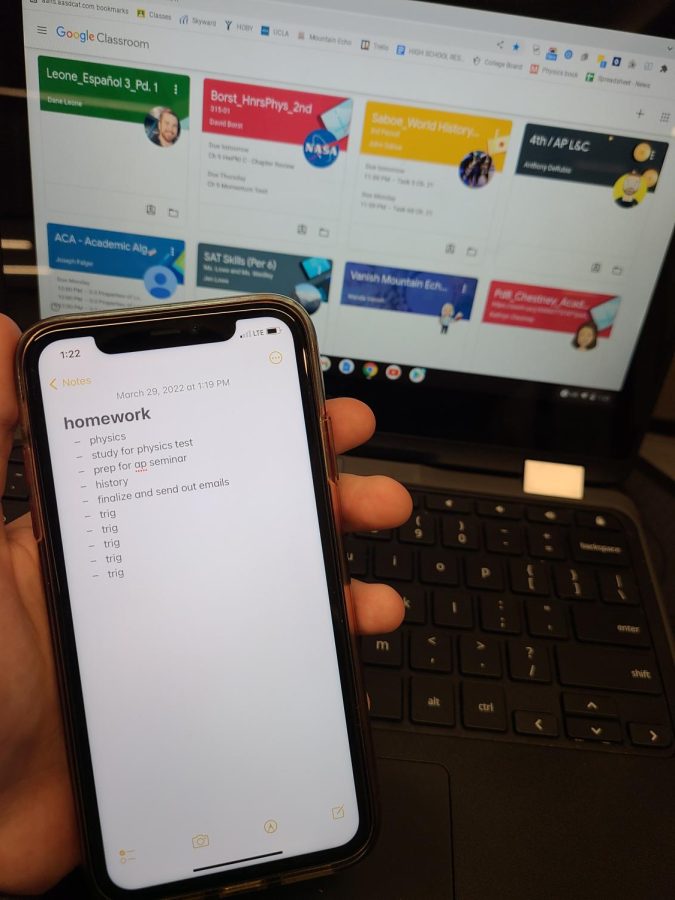Teachers should give less homework
To do. Students resort to making lists to keep up with the immense amounts of work. Many students express worries of staying up late to complete assignments.
March 31, 2022
In a study published in the Journal of Experimental Education among 10 high-performing private and public schools, 56 percent of students involved recognized homework as the biggest stressor they face in their lives. This statistic is astonishing, and that was only from one small study. Would the numbers be higher if the study was nationwide or even worldwide? Why are children having to stress out about work they could be doing at school?
Homework stress isn’t just a child issue. Many teachers and parents will also have to deal with their students or children being stressed due to homework. In the aforementioned study, the average amount of homework students were required to complete each night was three hours. That doesn’t seem like a lot at face value, but other factors must be taken into account.
According to a 2018 report from the United States Census Bureau, “42 percent of school-aged children were involved in sports, 30 percent were involved in lessons and 28 percent were involved in clubs.” These students involved in said activities already have school for six to eight hours a day. Then, they have practices, meetings, games, etc. to attend after school which can last for several hours. And after all is said and done, these students still have to go home at the end of a long day and complete their homework. This could keep students up late at night causing them to be tired during the school day, and in turn making it hard to focus. So really, homework is inefficient.
Some argue against this, stating that homework is actually helpful for students. The common argument seems to be from the teachers who add to students’ workloads each night, claiming that homework allows students to be able to prioritize and retain information learned during the school day. While this may be true in part, it can’t compare to the stresses that homework inflicts upon students.
However, every problem has a solution. So what exactly is the solution to the homework crisis? Homework limitations are the clear answer. A school policy should be in place to prevent too much homework to be given to students. An example of this could be a rule banning weekend homework and only allowing homework to be given by teachers every other night. Each assignment should take no longer than 20 minutes to complete. Other alternatives could work as well. According to Harvard Ed. Magazine, “Some schools and districts have adapted time limits… with the 10-minute per grade rule being the standard — 10 minutes a night for first-graders, 30 minutes for third-graders, and so on.” With policies like these, student stress caused by homework can be a problem of the past.








Remi Dempsie • Mar 6, 2024 at 1:40 pm
I’m not sure why some students are complaining. Depending on the subject, I would love to do some homework every now and then.